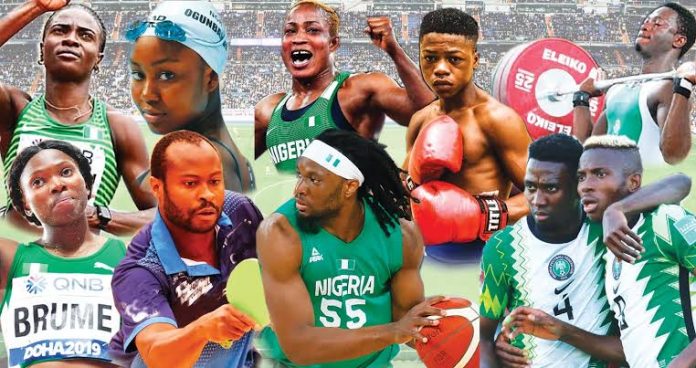In the heart of Nigeria, where the roar of the crowd once symbolized triumph and national pride, a disheartening silence has settled. The economic crunch has firmly gripped the athletic landscape, casting shadows on the vibrant sports scene that once united the nation.
From the hallowed football pitches to the echoing athletics tracks, an undeniable financial squeeze has permeated every aspect of Nigerian sports. Government funding, historically insufficient, has constricted even further, leaving sports federations in a desperate scramble. Sponsorship deals, once considered lifelines, are drying up, victims of the broader economic slowdown. The consequence is a crumbling infrastructure, faltering training programs, and dwindling athlete support.
The fallout is stark, particularly for elite athletes who require additional resources and state-of-the-art facilities for proper training to compete on the international stage. Meanwhile, grassroots development, the very lifeblood of future success, faces a critical juncture as programs shrink and talented youngsters lose out on opportunities. Sports facilities, once bustling hubs of activity, now stand neglected, echoing the emptiness of missed potential.
The repercussions extend beyond the realm of mere medals and trophies. Sports, a potent force in fostering national unity, providing hope for underprivileged youth, and promoting healthy lifestyles, is under threat. The economic hardship, if left unchecked, could turn this potential into dust, exacerbating social inequalities and dimming the lights on a national passion.
Yet, amidst the prevailing gloom, there are glimmers of hope. Innovative solutions must emerge to counteract the prevailing challenges. The public and private sectors must unite, exploring public/private partnerships, launching crowdfunding campaigns, and championing community-driven initiatives to gain momentum. The indomitable spirit of Nigerian athletes, undeterred by financial constraints, continues to shine brightly.
The road ahead may be challenging, but it is not insurmountable. To reinvigorate Nigerian sports requires a multi-faceted approach. Increased government support, responsible utilization of existing resources, and greater private sector involvement are crucial pillars. Investing in grassroots development, implementing transparent management practices, and leveraging technology can pave the way for a sustainable future.
In this dire moment, the fight for the soul of Nigerian sports has commenced. Will economic hardship silence the cheers, or will the nation rise to the challenge? The answer lies in collective action, innovative solutions, and a renewed commitment to unleashing the true potential of Nigerian sports. The cheering can and must resume, echoing victories on the field and triumphs over adversity that resonate far beyond the final whistle.












